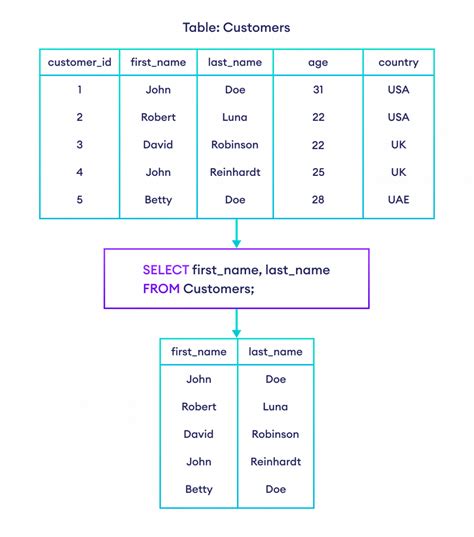SQL, or Structured Query Language, is a programming language designed for managing and manipulating data stored in relational database management systems. One of the powerful features of SQL is its ability to make decisions based on conditions, similar to if-else statements found in other programming languages. The SQL IF clause, also known as the IF statement or IF function, allows database administrators and developers to execute different blocks of code based on specific conditions. This article will delve into the use of SQL IF clauses, exploring their syntax, applications, and examples across various database management systems.
Introduction to SQL IF Clauses

SQL IF clauses are used to execute a block of code if a certain condition is true. The basic syntax of an IF statement in SQL varies slightly depending on the database management system being used. For instance, in MySQL, the syntax is straightforward and resembles conditional statements in other programming languages. However, other databases like SQL Server use the CASE statement to achieve similar functionality. Understanding these differences is crucial for writing effective and database-agnostic SQL code.
MySQL IF Clause
In MySQL, the IF statement can be used in stored procedures and functions to control the flow of a program based on conditions. The syntax for a simple IF statement in MySQL is:
IF condition THEN
-- code to execute if condition is true
END IF;
This can be extended to include ELSE clauses for handling situations where the condition is false:
IF condition THEN
-- code to execute if condition is true
ELSE
-- code to execute if condition is false
END IF;
SQL Server CASE Statement
SQL Server uses the CASE statement to make decisions based on conditions. The CASE statement has two formats: simple and searched. The simple format is used when comparing an expression to a set of values, while the searched format is more flexible and allows for the evaluation of conditions. The basic syntax for the searched CASE statement, which is more akin to an IF clause, is:
CASE
WHEN condition1 THEN result1
WHEN condition2 THEN result2
...
ELSE resultN
END
Applications of SQL IF Clauses

SQL IF clauses are versatile and find applications in various scenarios, including but not limited to:
- Data Validation: Before inserting or updating data, IF clauses can be used to validate the data against certain conditions, ensuring data integrity.
- Conditional Execution: IF clauses enable the execution of different queries or operations based on the current state of the data or database, allowing for more dynamic and adaptive database operations.
- Error Handling: By checking for potential error conditions, IF clauses can help in gracefully handling errors and exceptions, improving the robustness of database scripts and applications.
- Reporting and Analytics: In complex reporting and analytics queries, IF clauses can be used to apply different calculations or logic based on the data being analyzed, enhancing the flexibility of SQL queries.
Example Use Cases
Let’s consider a simple example in MySQL where we want to calculate the bonus for an employee based on their performance rating. If the rating is above 4, the bonus is 10% of the salary; otherwise, it’s 5%.
DELIMITER //
CREATE FUNCTION CalculateBonus(rating DECIMAL(3,2), salary DECIMAL(10,2))
RETURNS DECIMAL(10,2)
BEGIN
DECLARE bonus DECIMAL(10,2);
IF rating > 4 THEN
SET bonus = salary * 0.10;
ELSE
SET bonus = salary * 0.05;
END IF;
RETURN bonus;
END//
DELIMITER ;
In SQL Server, using the CASE statement to achieve a similar result would look like this:
CREATE FUNCTION dbo.CalculateBonus(@rating DECIMAL(3,2), @salary DECIMAL(10,2))
RETURNS DECIMAL(10,2)
AS
BEGIN
DECLARE @bonus DECIMAL(10,2);
SET @bonus = CASE
WHEN @rating > 4 THEN @salary * 0.10
ELSE @salary * 0.05
END
RETURN @bonus;
END
| Database Management System | IF Clause Syntax |
|---|---|
| MySQL | IF condition THEN... END IF; |
| SQL Server | CASE WHEN condition THEN result... END |
| Oracle | IF condition THEN... END IF; |
| PostgreSQL | IF condition THEN... END IF; |

Key Points
- SQL IF clauses allow for conditional execution of code based on specific conditions, enhancing the flexibility and adaptability of SQL queries and scripts.
- The syntax and usage of IF clauses can vary significantly across different database management systems, such as MySQL, SQL Server, Oracle, and PostgreSQL.
- SQL IF clauses find applications in data validation, conditional execution, error handling, and reporting and analytics, among other areas.
- Understanding the specific syntax and capabilities of IF clauses in the target database management system is crucial for effective usage.
- While powerful, IF clauses should be used thoughtfully to maintain code readability and simplicity.
What is the primary use of SQL IF clauses?
+The primary use of SQL IF clauses is to execute different blocks of code based on specific conditions, allowing for more dynamic and adaptive database operations.
How do SQL IF clauses differ across database management systems?
+SQL IF clauses differ significantly in syntax and usage across different database management systems. For example, MySQL uses a straightforward IF statement, while SQL Server utilizes the CASE statement to achieve similar functionality.
What are some common applications of SQL IF clauses?
+Common applications include data validation, conditional execution, error handling, and reporting and analytics. SQL IF clauses can be used to apply different logic or operations based on the current state of the data or database.



